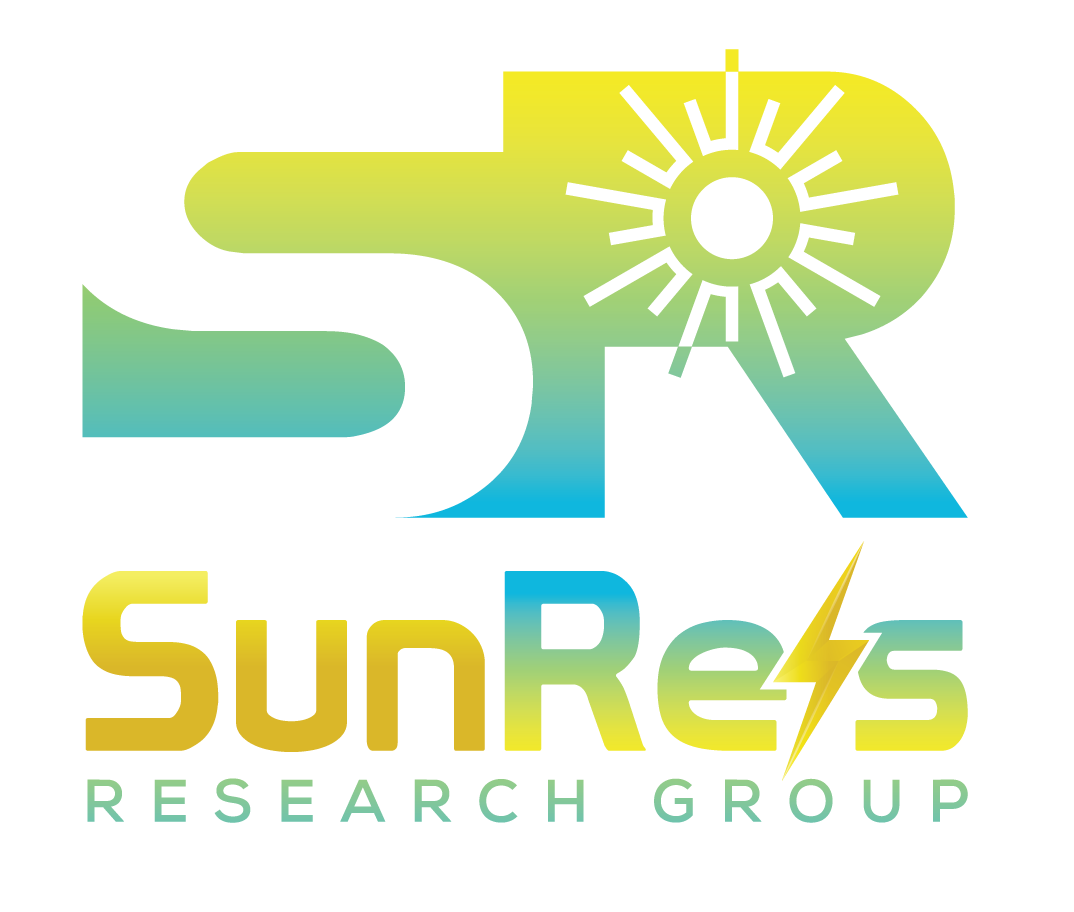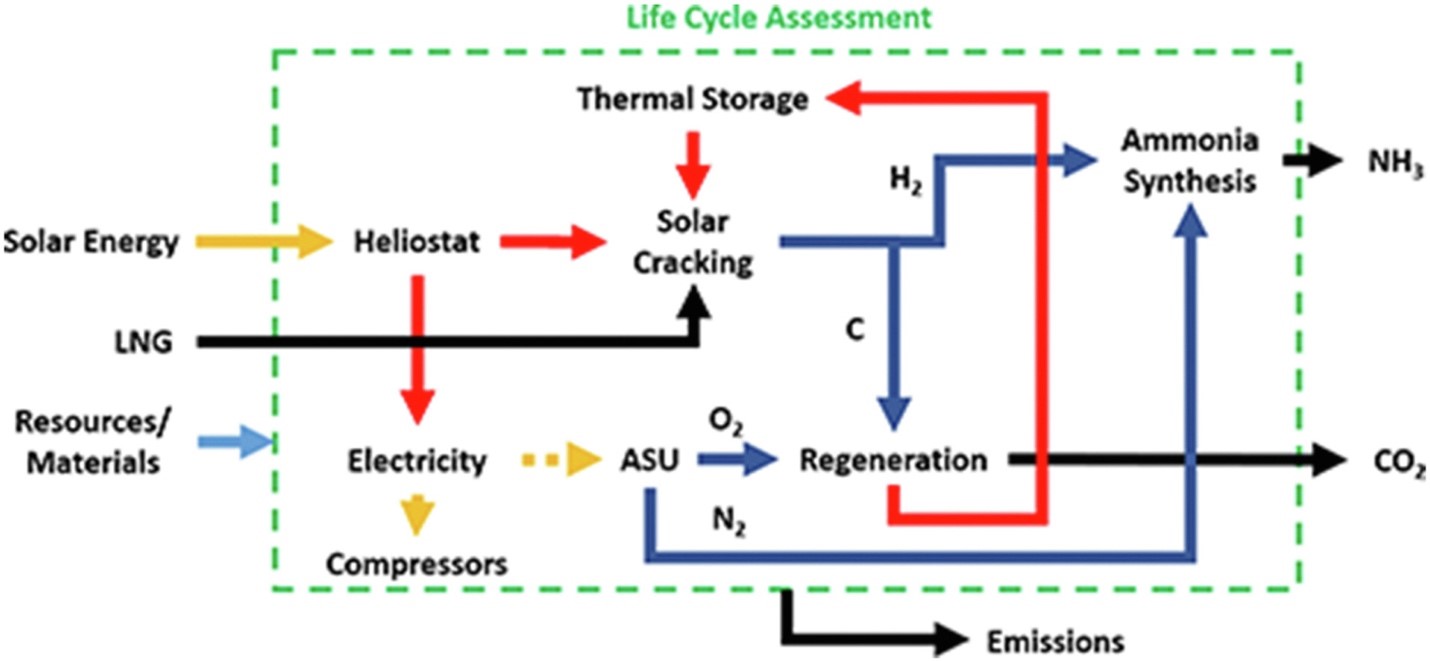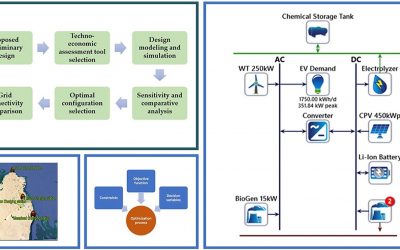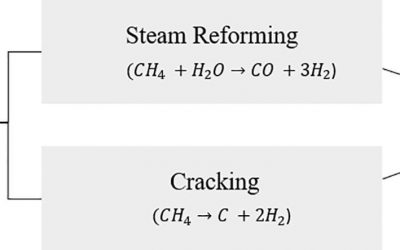Life Cycle Assessment Of Clean Ammonia Synthesis From Thermo-Catalytic Solar Cracking Of Liquefied Natural Gas
Ammonia is considered a sustainable energy storage medium with zero carbon content. In this work, thermal catalytic cracking of liquefied natural gas (LNG) at elevated temperatures employing concentrated solar tower is considered to produce clean hydrogen (CO2-free) and studied in terms of life cycle emissions. The generated hydrogen is utilized for clean ammonia synthesis in a Haber-Bosch reactor. The proposed system is initially assessed from a thermodynamic perspective, considering energy and exergy analyses emphasizing optimization of operating conditions. Then, the proposed system’s life cycle assessment (LCA) is performed to analyze ammonia synthesis’s environmental impacts. The aggregate environmental impact of the proposed system is quantified and compared with conventional production processes. Through the utilization of solar energy resources, ammonia production can be attained, avoiding high harmful emissions. The LCA study is carried out in GaBi software, and the selected impact assessment methodology is ReCiPe. The impact categories studied in this work are global warming potential (GWP), terrestrial acidification, human toxicity, and particulate matter formation potential. Considering 30 years of use phase and allocation, the predicted GWP is approximately 0.616 kg CO2 (eq.)/kg NH3, showing the potential to reduce up to 69.2% of the GWP compared to the global average value. Concerning human toxicity and fine particulate matter formation impact categories, the system produces about 3.32E-2 kg 1,4-DB (eq.) and 5.96E-4 kg PM2.5 (eq.), respectively, per kg NH3. The results are further analyzed by dominance, break-even, and variation analyses in detail.
Research Highlights
Techno-Economic Optimization Of A Novel Stand-Alone Renewables-Based Electric Vehicle Charging Station In Qatar
One of the main challenges of e-mobility roll-out is securing the required charging demand without stressing the existing power grid. The electrical source must be non-conventional to achieve the ultimate eco-friendly goal.
Review On Cox-Free Hydrogen From Methane Cracking: Catalysts, Solar Energy Integration And Applications
Hydrogen fuel production from methane cracking is a sustainable process compared to the ones currently in practice due to minimal greenhouse gas emissions. Carbon black that is co-produced is a valuable product and can be marketed to other industries.
SunReis (Sustainable Utilization of Novel Renewable Energy Integration & Storage)
SunReis (Sustainable Utilization of Novel Renewable Energy Integration & Storage) is a research group at Hamad Bin Khalifa University, Qatar, led by Dr. Yusuf Bicer. The acronym is derived from 'sunrays', where “reis” means leader/president in Arabic and Turkish. The group’s research interests include sustainability, energy storage, energy carriers, hydrogen, ammonia, integrated energy systems, cooling, desalination, carbon capture & management and renewable energy sources such as solar, wind, and ocean.



